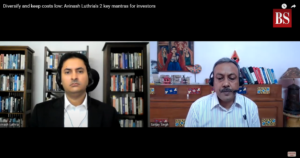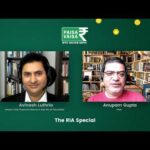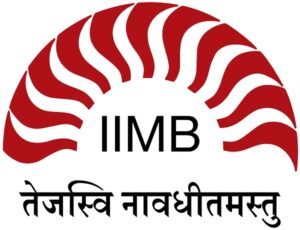
The best article, among the articles that I have written: How much money do you need to retire?
This simple formula provides the answer
Published in Mint in March 2020; This article elaborates on an earlier article from July 2018; Cached copy of the print version of the article
Excerpt: Retirement calculators are complex, and their complexity is causing problems. These black-box retirement calculators are too complex for most people to understand. More importantly, the complexity in these calculators hides their inbuilt optimistic and wrong assumptions. As a result, people are saving too little for retirement; retiring earlier than their finances allow them to; and overspending during the early years of their retirement. Those looking for a clearer picture should instead, use this one simple formula.

Podcast for beginners: Emergency Fund basics...
...and why one should keep sufficient liquidity in Fixed Deposits for medical emergencies
Published by Mint in April 2024
Excerpt: The Emergency Fund is the entire net worth that is liquid; The Emergency Fund is just a psychological tool to negotiate with ourselves
Financial planning mistakes that experts make
Published in Business Standard in December 2023; Cached copy of the article
Excerpt: Mistake 1: Personal finance is more personal than it is finance; Mistake 2: Core and satellite portfolio; Mistake 3: The 4 percent rule

Panel discussion: It is very good that SEBI might force MFs to have the same expense ratio for all Active Equity MF schemes of one fund house...
...and how this helps less vigilant customers
Published on MoneyControl's YouTube channel in May 2023
Excerpt: Also why Performance Based Fees for MFs is unlikely to gain much traction in the near future

Podcast: Why I strongly dislike Thematic / Sectoral funds...
Published by Mint in April 2023 ; Cached copy of the podcast episode
Excerpt: Why Thematic / Sectoral funds have only very rare use-cases; Why the hundreds of Thematic / Sectoral funds exist primarily to meet the demand of high commission of up to 1.5% p.a. from Mutual Fund Distributors; Why the SEBI chairperson is trying to close this loophole in SEBI regulations
Could you run out of money in your lifetime?
Published in Business Standard in February 2023; Cached copy of the article
Excerpt: Good personal financial planning is just like good corporate strategy... Good personal financial planning is about identifying the most important reason why a person could run out of money in his lifetime and finding a workable solution to it, even if it is a partial solution. In the unlikely case that there is no such risk, it means identifying the most important new freedom the individual could aim for and how to go about it....
Why Active Mutual Funds don’t beat the index
Published in Business Standard in November 2022; Cached copy of the article
Excerpt: Some promoters might sell shares based on inside information that the company is going to report poor financial results six months later. It is almost impossible for the government to prove that the promoter did something illegal. The same applies to promoters buying shares.
Why saving enough for retirement is difficult
Published in Business Standard in August 2022; Cached copy of the article
Excerpt: Real returns on zero-risk debt mutual funds (overnight funds) have been consistently negative. The only way for the government’s debt to remain sustainable is for most individuals to bear this pain and subsidise the government
Zero-fee financial services can prove to be expensive
Published in Business Standard in August 2022; Cached copy of the article
Excerpt: Five ways in which zero fee can prove to be extremely costly -- Hidden fees, Upselling or cross-selling, Creating dependence, Creating an addiction, Targeting your unique weak spot
Top ten myths about financial planning
It is a myth that those who are knowledgeable about personal finance should not engage with an RIA
Published in Business Standard in July 2022; Cached copy of the article
Excerpt: The top ten myths are: My distributor has given me a financial plan; Any RIA can calculate how much I have to save; Financial planning means getting a plan document; All RIAs put in the same amount of effort; Investment advice means selecting Active Mutual Funds; 1% per annum of Assets Under Management is a fair fee; HNIs should not spend more on RIA fees; I want the fees to be based on the returns; I can do the calculations myself; Novices should seek financial advice

Business Standard interview: Diversify and Minimize Investment Costs...
...and how to select an Index Fund
Published on Business Standard in June 2022; This discussion was recorded on 18th June 2022 before SEBI's subsequent temporary relaxation about investing in International Funds
Excerpt: Why the cost of an investment product (e.g. Active MF) is so important; Why I recommend only Passive Index Funds to Clients; How to choose a Domestic Index Fund; How to choose a Domestic ETF; How to choose an International Fund; Why I am so confident about this approach

Financial Planning Case Study: A complex asset-allocation decision
Should the client exercise the stock options?
Published on FreeFinCal in March 2022
Excerpt: Should the client exercise the stock options and what is your rationale for your recommendation? And only after you have answered that a more technical and hence optional question is: what critically important aspect of the valuation of a venture capital-backed unlisted company have the client and the RIA completely missed discussing?
The mania in Bitcoin, Baskets of stocks, IPOs & influencers
Keeping your head when others are losing theirs
Published in Business Standard in December 2021; Cached copy of the article
Excerpt: Pointing to gold, the only important exception to the intrinsic-value rule, is a very weak justification for arguing that Bitcoin will retain its value

Case study - Retirement Planning is the hardest problem in finance
Published in Mint in Dec 2021; Cached copy of the print version of the article ; A one-word error crept into the article during the publishing process. The original and correct version in both paragraphs reads as "till Sangeeta turns 90". Further, to clarify, this is a fictional case study.
Excerpt: The interest on the net worth in the first year of retirement is almost irrelevant for the calculation of how much one should save for retirement. Due to inflation, it is normal for the net worth to increase during the initial years of retirement, then to plateau out, then to drop back to the initial amount and finally to rapidly drop towards zero. This is normal but it is counterintuitive. And the high inflation in developing countries such as India makes this calculation even more counterintuitive.

YouTube: Retirement Planning is the Hardest Problem in Finance
And how you can turn the pathetic advice of all 'Influences' to your advantage
Published on FreeFinCal's YouTube channel in October 2021
Excerpt: There are dangerous side-effects of believing the myth that Retirement Planning is just common sense

Podcast video: Clients unknowingly gift two apartments to a 1% of AUM Financial Planner over 30 years
So, if you choose to engage with an RIA, then engage with one of the 25 Hourly-Fee / Fixed-Fee RIAs
Episode on Paisa Vaisa released in August 2021 and was recorded a couple of months before it was released; Cached copy of the audio only
Excerpt: Why the flawed fee structure is the root cause of bad investment advice by most MF Distributors and many Percentage of AUA RIAs

Avoid Percentage of AUA fees for financial planning and investment advice
Ask Fixed-Fee RIAs to disclose the number of hours of effort
Published in Mint in Aug 2021; Cached copy of the print version of the article ; A 1 - 2 word error crept into the article during the publishing process. The original and correct 5th sentence was: "Here, I explain why you should select an hourly-fee RIA else then a fixed-fee RIA."
Excerpt: Clients should select a more transparent fee structure because that minimizes the conflict of interest between the client and the RIA; Hourly-fee is the most-transparent fee structure and hence is the gold-standard in the US. However, currently hourly-fee is almost non-existent in India and hence clients are forced to select fixed-fee.

The Ten Commandments of Personal Finance
There is no predictable way to become rich but there is a predictable way to avoid becoming poor
Published in Mint in May 2021; Cached copy of the print version of the article
Excerpt: Diversify; Minimize investment costs; Minimize reckless mistakes; Do not chase the mirage of alpha; Do not use complex products; Do not retire too early; Save half of your post-tax salary; Do not completely outsource personal finance to anyone; Learn about personal finance; Teach your family about personal finance.

How to select an Hourly-Fee Financial Planner
Hourly-Fees are how lawyers and doctors charge their clients
Published in Mint in March 2021; Cached copy of the print version of the article ; Full version of the article with links and more context, posted on LinkedIn
Excerpt: Fee-Only (Advice-Only) i.e. Hourly-Fee Financial Planners themselves differ significantly in three important ways. First, a few RIAs focus on high net-worth individuals who are willing to pay a higher fee to go into more details and to learn the nuances of personal investing. While other RIAs focus on relatively lower net-worth clients who want a low total-fee and hence the number of hours of effort by the RIA have to be minimized. Second, a few RIAs spend more time on research allowing them to focus on clients that are knowledgeable about personal investing. While other RIAs have the patience to guide clients that are less knowledgeable about personal investing. Third, a few RIAs are open to additionally engaging with clients in the US etc where taxation limits the set of suitable Indian investment products. Read the RIA’s website and articles to shortlist three that you will speak to. (Note: This is the correct version of the last sentence. An editing error happened in the version that was published.) Then go with your gut-feeling about the one RIA that you will formally engage with.

Emotional arguments against Index Funds
It is rational to use index funds and irrational not to
Published in Mint in November 2020; Cached copy of the print version of the article
Excerpt: Rationality dictates that we use index funds instead of active MFs in India. There are no robust rational arguments in favour of active MFs. Hence, beneficiaries of active MFs are forced to either use statistically incorrect arguments or emotional arguments such as: Using your ego against you; The social proof argument; and the lottery ticket argument

It is arrogant to assume that you have the skill to pick stocks and beat the index
You may significantly underperform the index and jeopardize your retirement
Published on FreeFinCal in November 2020
Excerpt: None of us expect that we can do the job of a competent brain surgeon without dedicating our life to it. Similarly, it is extremely arrogant to assume that we have the skill to pick stocks and beat the index. If you don’t have the skill to beat or match the index, then your direct equity investments could massively underperform the index and hence jeopardize your retirement.
Video: Why I have not recommended gold
Instead investors can use the US S&P 500 Index Fund to hold US dollar assets
Video discussion at Bloomberg Quint in October 2020; My video connection is very poor in this discussion; Link to the article version of the same discussion
Excerpt: Gold is quite risky and it is even more difficult to forecast than equity; The price of gold fell 60% and in inflation adjusted terms it fell by 83% over 21 years from 1980 to 2001; And as of today, gold is yet to reach its inflation adjusted price from 1980 i.e. 40 years later; I prefer the US S&P500 index fund to get exposure to US dollar assets and partially mitigate the risk of unexpected high inflation in India

Minimize investment costs to maximize investment returns
Fees of 1% p.a. means losing 26% over 30 years
Published in Mint in September 2020; Cached copy of the print version of the article
Excerpt: Not minimizing investment costs is likely to result in: Sacrificing 30% of investment over 30 years; Cutting your budget by 30% after retiring; Delaying your retirement by 5-10 years; Zero real returns could become negative
Video: Why I don't recommend Smart Beta / Factor Investing / Quant Funds
Discussion with Mutual Fund managers
Video discussion at Bloomberg Quint in June 2020; Link to the article version of the same discussion
Excerpt: It is a myth that 'Smart beta or factor investing (example, investing in small-cap index funds) allows you to beat the index on a risk-adjusted basis'. Nobel prize winner Eugene Fama, who is the brain behind the smart-beta strategy, has himself said that any additional expected return from a smart-beta strategy comes from higher expected risk.

How much money do you need to retire?
This simple formula provides the answer
Published in Mint in March 2020; This article elaborates on an earlier article from July 2018; Cached copy of the print version of the article
Excerpt: Retirement calculators are complex, and their complexity is causing problems. These black-box retirement calculators are too complex for most people to understand. More importantly, the complexity in these calculators hides their inbuilt optimistic and wrong assumptions. As a result, people are saving too little for retirement; retiring earlier than their finances allow them to; and overspending during the early years of their retirement. Those looking for a clearer picture should instead, use this one simple formula.

Finally, a way for resident Indians to invest abroad
...with the Motilal Oswal S&P 500 Index Fund
Published on Indexheads in April 2020
Excerpt: I [subjectively] prefer the Motilal Oswal S&P 500 Index Fund to all other Indian mutual funds which allow you to invest outside of India

Podcast: The Boglehead approach to investing in India
Almost everything you have heard about financial planning and investing is wrong
Episode on Paisa Vaisa released in January 2020 and was recorded in November 2019
Excerpt: Putting 80% of your net worth in equity is irrational!; People have forgotten how risky equity is in the short term and they do not understand how risky it is even in the long term; The right approach to Debt Mutual Funds; What is Advice-Only Financial Planning; How you can find an Advice-Only Financial Planner; I specialize in the most mature clients e.g. a few of my clients are Fund Managers
Beware of claims that contradict finance theory
Published in Business Standard in January 2020; Cached copy of the article which will download in PDF format
Excerpt: Some of the false claims include back-testing, smart-beta, 'long-duration bonds are not risky' and 'rebalancing reduces risk'

The battle for 1% p.a. will determine whether you will survive retirement
Learn to spot the tactics that your opponents are using
Published on FreeFinCal in November 2019
Excerpt: Dalal Street's (i.e. the financial services industry's) primary focus is to transfer wealth from the client to Dalal Street. Dalal Street does this by transfering 1% of the client's net worth each year from the client to Dalal Street. Let’s look at five tactics that Dalal Street uses to achieve this. This may help you identify such tactics and protect yourself against them.

Second order thinking explains why you should invest in index funds and also the most suitable index fund products
Published on Indexheads in November 2019
Excerpt: The Boglehead approach to investing results in investing in the Nifty 50 Index Fund and Overnight Funds
The average Indian active mutual fund does not beat the index
Ignore false arguments against index funds
Published in Business Standard in October 2019; Cached copy of the article which will download in PDF format
Excerpt: The active mutual fund industry use these deceptive arguments to support their claim that they beat the index -- Focusing on best-performing survivor funds; Using ambiguous data; Asking you to pick the right schemes

Why individual investors should avoid Alternative Investment Funds
You should invest in a PE / VC / Hedge Fund only if you can manage such a fund
Published in Mint in October 2019; Cached copy of the print version of the article
Excerpt: If you can successfully manage a Private Equity , Venture Capital or Hedge Fund, then you have a tiny chance of being able to identify a suitable fund to invest in. Otherwise, you have no hope in hell of knowing which fund to invest in. Instead, invest in an index fund such as the Nifty 50 index fund with the lowest fees

YouTube: Misconceptions about Early Retirement
Published on FreeFinCal's YouTube channel in August 2019; This link takes you to the same content in the form of an article
Excerpt: No competent financial planner goes by the '4% rule'
PMS investment is too risky, opt only if you have a large portfolio
Published in Business Standard in August 2019; Subsequently, SEBI increased the minimum investment in PMS to Rs 50 lakhs so please read the article with that context in mind; Cached copy of the article which will download in PDF format
Excerpt: The poor quality of publicly-available data makes it very difficult to identify a top investor among the 200-plus PMS managers; Almost all investors are likely to be better off investing in mutual funds, particularly index funds, instead of investing in PMS

Three things aspiring entrepreneurs must evaluate before starting up
Published on VCCircle in July 2019
Excerpt: Let’s assume that you are 40 years old and you are the primary breadwinner in the house...Before you begin a startup, your net worth minus any investment in the startup (over the next five years), should be equal to at least 25 times your annual family expenses in your first year as an entrepreneur.

Why it’s a myth to say that equity is safe in long term
Often, people take too much risk believing the myth that equity is safe in the long term
Published in Mint in July 2019; Cached copy of the print version of the article
Excerpt: Believing the myth that equity is safe in the long term is one of the key reasons that people take too much equity risk. Data, theory and principles of finance all disagree with this myth. The reality is that over a 5-10[-20-30] year horizon, there is a higher probability that equity will at least match inflation but there is also a material probability that it will generate returns that are lower than inflation

Three blind spots to avoid in your money matters
Published on MoneyControl in June 2019
Excerpt: The worst financial products pay the highest commissions. And salesmen push the products that have the highest commissions. So, if a salesman is pushing you to buy a product, it is probably a bad product—insurance investment policies, structured products and credit risk funds. The best products are usually not pushed by anyone. You have to make the effort to find out about their features and buy the most suitable products.

Reading the S&P Index Versus Active Funds India report will change the way you invest
Indian mutual funds, as a whole, do not beat the index
Published on FreeFinCal in June 2019
Excerpt: Since the first S&P Indices Versus Active funds (SPIVA) India report for year-end 2009, it has been saying that Indian active mutual funds do not beat the index. But very few investors have read the SPIVA report and most people who read it, find it difficult to understand it. This article aims to simplify the SPIVA report to help you understand it

How should you select a Registered Investment Adviser (RIA) to engage with?
Published on FreeFinCal in May 2019
Excerpt: 'Advice-Only is the sub-set of Fee-Only that is best for investors'; 'Fee-Only (Advice-Only)' means that (a) The RIA should not explicitly / implicitly earn any referral fee from a Distributor or anyone else; (b) The RIA’s fees should be proportional to the RIA’s time/effort. The RIA’s fees should not primarily be a function of the client’s assets under management nor net worth nor income; (c) The RIA should ensure that the client is not dependent on the RIA
Private Equity lessons for Personal Investing
Evaluate each investment as if your life depends on it—because it does
Published in Business Standard on 6th April 2019; Cached copy of the article which will download in PDF format
Excerpt: Questions that private equity investors ask themselves may help you avoid bad investments such as Credit Risk Funds etc

The mature approach to personal finance
The golden rules of investing are to diversify and minimize investment costs
Published on FreeFinCal's YouTube channel in March 2019; This link takes you to the same content in the form of an article
Excerpt: William Sharpe's golden rules of investing are to diversify and keep investment costs low

How even DIY investors can benefit from a registered Investment Adviser
Such a discussion may address issues, answer questions or at least, provide a second opinion
Published on FreeFinCal.com in February 2019; The second-half of the article also covers 'Why you should avoid Structured Products'
Excerpt: The discussion between the client and the RIA should identify a critical problem or answer a critical question e.g. "Stop investing in complex, high-fee and risky experimental investments such as Structured Products"

The two-headed Goliath—Mutual Funds and their distributors
Published on The Ken on 10th January 2019; In this article, I am recommending zero-commission plans / Direct Plans and index funds / ETFs; The article is behind a paywall, but free registration at The Ken provides access to a 200-word summary of all their articles;
Excerpt from the summary:
'Investors have been pushed to take too much risk because equity funds have the highest fees/commissions; Indian mutual funds, as a whole, do not beat the index; distributors use ambiguity in the regulations to push schemes with the highest fees/commissions and mutual funds like this arrangement; no one can predict which mutual fund schemes will have the best performance even over a 10 year period. In addition, Indian MF fees and commissions are some of the highest in the world.'
Excerpts from the article:
'Unnecessarily high fees of [Mutual Fund] AMCs and unnecessarily high commissions of distributors force investors to pay fees of an estimated 2% per annum as opposed to a more reasonable 1%. This 1% of excess fees eats up 1% of an investor’s investment each year. While the exact amount is debatable, the long-term impact is clear from simple arithmetic. If an investor surrenders 1% of her investment each year, then cumulated over 30 years, she has lost 26% of her investment.'
'Sanjiv Shah [former CEO of Goldman Sachs’ Indian MF and co-founder of Benchmark MF] offers a damning verdict of this arrangement [between Mutual Funds and their Distributors]. “Due to a distributor’s skewed incentives, in many cases, a distributor’s value to an investor may not just be zero, but may actually be negative—the distributor may be subtracting value from an investor.” Shah gives the example of equity funds versus debt funds. Since the former pay higher commissions, he says, distributors push investors to invest more in equity funds, even if this could be harmful to the investor. A visible sign of this is that two-thirds of MF investments by individuals are in equity schemes, despite the vulnerability of these schemes to stock market crashes.'

Are you taking too much equity risk?
Decide equity allocation based on your need, capacity and temperament for risk
Published in Mint in November 2018; Cached copy of the print version of the article which will download in PDF format
Excerpt: India does not have financial products that are available in developed countries. Hence the amount of risk that you should take is a subjective function of your need, capacity and temperament for risk

YouTube: Webinar on Financial Planning & Investing...
...conduced for IIM Bangalore alumni
Published on the IIM Bangalore Alumni YouTube channel; Recorded in November 2018
Except: How much should I save for retirement? How much can I spend during retirement? Principles of Investing
You can mitigate domestic risks by investing abroad, here's how
Published in Business Standard in September 2018; Cached copy of the article which will download in PDF format; Note: The correct date of publication of the academic paper referred to in this article is June 1999
Excerpt: The primary reason one should invest in international equities (via an international index fund) is to diversify one’s risk by not putting 100 per cent of one’s net worth in one country, India, which contributes just 3.3 per cent of world nominal GDP. None of us would be willing to put 100 per cent of our net worth in Italy, which is an economy of a comparable size. This is despite Italy’s S&P sovereign credit rating being one notch higher than India’s. India’s credit rating incidentally is one notch above junk

Turn no-free-lunch from an opponent to an ally
Published on FreeFinCal.com in September 2018
Excerpt: Overnight Funds and extremely low credit-risk Liquid Funds like Quantum Liquid Fund are the only Debt Funds that, can be relied upon to consistently beat high-quality Fixed Deposit post-tax returns (assuming that one stays invested for 3+ years and a marginal income tax rate of around 30%)

Satisficing around financial products that almost do not exist
Some risks can’t be mitigated by products as such products almost don’t exist in India
Published in Mint in September 2018; Cached copy of the print version of the article which will download in PDF format
Excerpt: India does not have suitable Life Annuities, Disability & Critical illness insurance and CPI-inflation indexed bonds; So how do you mitigate this?

Living with Zero Real Returns
Published on FreeFinCal.com in July 2018
Excerpt: For most people the corpus that you require to retire is 30 years of expenses; You should save half of your lifetime salary; Investment returns cannot compensate for inadequate savings (i.e. if you desperately need high returns, then you are likely to generate poor returns); Even small costs kill; There is no room for unforced-errors / blunders
Archive:

YouTube video with 6-minute introduction
